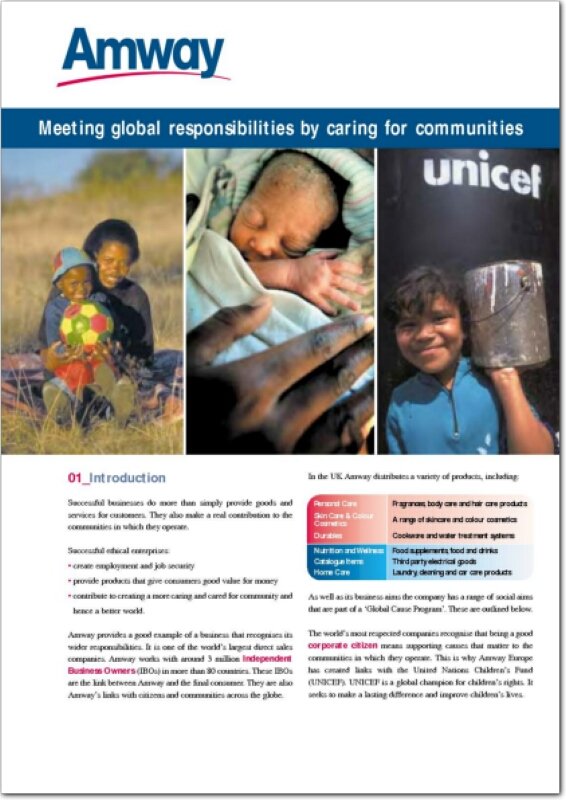Subscribe | Write for Us | Contact | Terms of Service | Privacy Policy | Copyright
© Copyright 1995 - 2023 GC Digital Marketing
Meeting global responsibilities by caring for communities (PDF)
Meeting global responsibilities by caring for communities in full in PDF format taken from edition 10 of Business Case Studies.
As a result of carefully reading the Case Study, Students should be able to:
- know the meaning of Corporate Social Responsibility (CSR)
- give examples of CSR activities
- understand the importance to business of being involved with communities on a local and global scale.
Read the case study online here
Meeting global responsibilities by caring for communities in full in PDF format taken from edition 10 of Business Case Studies.
As a result of carefully reading the Case Study, Students should be able to:
- know the meaning of Corporate Social Responsibility (CSR)
- give examples of CSR activities
- understand the importance to business of being involved with communities on a local and global scale.
Read the case study online here
Enjoy Unlimited Access To All Our Case Studies
Read the case studies online, download PDF’s and access lesson plans, worksheets and MP3 audio files for each case study with one of our subscriptions.
All of the levels include:
- No advertisements
- Unlimited access
- 600+ case studies to view online
- downloadable worksheets
- downloadable lesson plans
- Audio MP3 case studies
- 600+ PDF case studies to download
- discounted ebooks in our eBook shop
- Early access to new content
Academic User Site License
The academic user license once set up allows easy access for all teachers and students at one academic site with our IP-based login making it easier as there is no requirement to have separate logins and passwords. If you require access to more than one site then a separate license is required for each site, for multiple sites please contact us for pricing.

